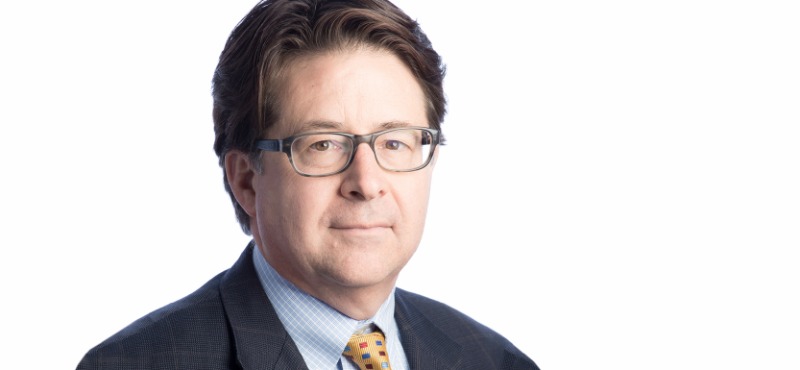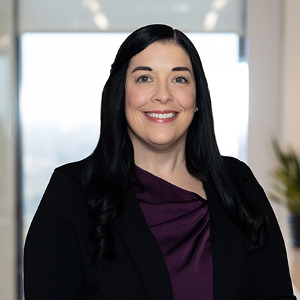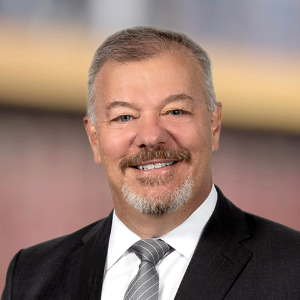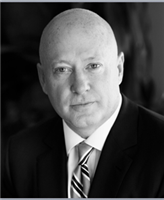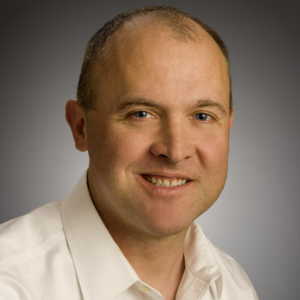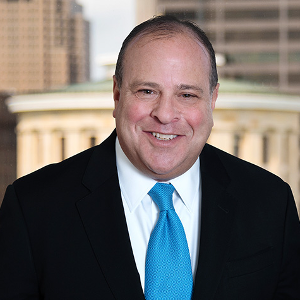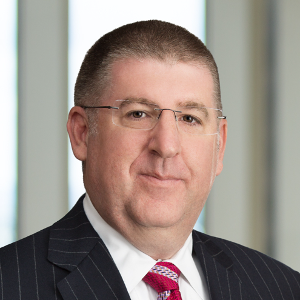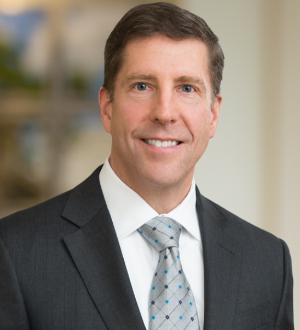Dean Strang is uncomfortable with his status as celebrity heartthrob. In fairness, one might have safely assumed that a Milwaukee native graduating Dartmouth College, attending University of Virginia School of Law, and settling into a career as an attorney based in Madison, Wisconsin, would be a path to a simple, successful, non-glamorous life. How could he have predicted that he would be the subject of a Tumblr feed titled “StrangCore,” a series of snaps of the attorney, culled from articles and video stills, that celebrates his dedication to truth, justice, and regular-guy style?
“My wife thinks it is all very funny,” says Strang of the many Internet-crushes that seem to have developed toward the criminal defense attorney.
It was his appearance in the wildly popular Netflix docu-series Making a Murderer that catapulted the earnest, soft-spoken attorney to meme-fame. But in reality, being a trial litigator—let alone a famous one—was not at the top of Strang’s to-do list. “When I was in law school, I had no intention of ever setting foot in a courtroom,” says Strang. “I thought I would do pension work, but after school I was hired by a large firm, and they placed me in the litigation department because that’s where they had a need.” And so history was writ. Strang took a liking to the department, to litigation, and quickly found friends and mentors, through whom he eventually found his way to a position at the U.S. Attorney’s office as a prosecutor. “It was my first step in exploring criminal law, and it caused me very quickly to say, in essence, ‘I love the shoes but I have them on the wrong feet,’” says Strang. “I liked criminal law, but was uncomfortable as a prosecutor—and I was a bad one, maybe the worst federal prosecutor ever.”
"Americans have a deep basic faith in the accuracy of accusation in this country, for whatever reason. All a lawyer can do is try to reduce or minimize the injustice being done."- Dean Strang
That deprecating modesty is a trait that Strang, now a founding partner at Strang Bradley LLC in Madison, Wisconsin, hasn’t lost, even as the spotlight has been cast on him and on his co-counsel, Jerry Buting, as they battled for a fair trial in the complicated and, occasionally, befuddling world of Manitowoc, Wisconsin, where Making a Murderer documented the now-infamous case of Steven Avery, from a rape conviction, exoneration, and lawsuit to a separate murder charge and conviction.
The story of Steven Avery, in brief, is that in 1985, at age 23, he went to prison for the rape of a local Wisconsin woman, a charge that would be vacated by DNA evidence after he had served 18 years of his sentence. After his release—a turn of events that already earned Avery some media coverage—Avery filed a $36 million civil suit against Manitowoc County, its sheriff, and its district attorney. The suit was still in progress when, in 2005, Steven Avery was arrested and charged with the murder of local photographer Teresa Halbach. In 2006, the civil suit was settled, and in 2007, Avery was convicted and sentenced to life imprisonment.
The details of the case, as told in the Netflix series made by Laura Ricciardi and Moira Demos, are deeply entrenched in local culture, family and neighborhood interpersonal relationships, and the politics that aren’t uncommon in small towns. The result is an often unsettling, sometimes conflicting tale of what might—or might not—have happened to Teresa Halbach and to Steven Avery (and his nephew, Brendan Dassey, also accused).
“There is a sort of hydraulic pressure that intense publicity exerts on actors in the system. Police, judges, prosecutors, defense lawyers, all of us,” says Strang. “We all withstand or don’t withstand pressure at different thresholds; in a smaller community, in particular, where families overlap, and grudges may go back generations. There is no anonymity. When you come in as an outsider, you understand there is a lot swirling beneath the surface.”
The complexities evident and the questions raised by this case appear to have struck a deep chord in audiences across America, hitting nerves on possible police and prosecutorial misconduct, evidence tampering, and witness coercion at a time when distrust of police and the justice system seems to be growing. “Some of the steps that the initial defense team in that case made, some things I was seeing for the first time in the series… made for riveting and revolting viewing,” says Strang. In response, countless Reddit threads, articles, blog posts, and social media pages have been dedicated to the public debate over whether Avery’s trial was a fair one. Several petitions have been submitted to the White House to pardon Steven Avery, but for Avery, the efforts might simply be a day late.
“You lose when you are charged,” says Strang. “You lose your peace of mind, you lose money, you lose faith in the system, you lose support of fair weather friends, you lose your reputation and, often, your lose your job, because no one actually presumes you innocent. Americans have a deep basic faith in the accuracy of accusation in this country, for whatever reason. All a lawyer can do is try to reduce or minimize the injustice being done.” Nonetheless, Strang believes that as difficult as it may be, he has been given an opportunity to speak out about systemic weaknesses and flaws in our criminal justice system as he perceives them. “It is both flattering and an honor, but I think I have a duty to use the moment to speak out about these broader issues. For 10 minutes there may be people who are willing to hear what I have to say.”
Strang, listed in Best Lawyers since 2009 in criminal defense: general practice and criminal defense: white-collar and selected to receive a “Lawyer of the Year” award for criminal defense in Madison in 2011, 2012, and 2015, has long been a voice for the accused—even in difficult or unpopular moments. Strang authored “Why We Shouldn’t Kill Timothy McVeigh,” an article for the Shepherd Express in June 1997 and a book titled Worse Than The Devil: Anarchists, Clarence Darrow, And Justice In A Time Of Terror for the University of Wisconsin Press in 2013. He has given many interviews on the Avery trial specifically, due to its notoriety, and now has launched a speaking tour with co-counsel Jerry Buting called “A Conversation on Justice.” He is not on Steven Avery’s legal team for his currently pending appeal, but maintains optimism, even regarding a case—and a loss—that is painful.
“Eight and a half years after I lost that trial, being forced to revisit the specific details of the criminology and watching the series, thinking, ‘Boy, I wish I had handled that cross differently, or noticed this or that about the evidence. …’ That has sort of reopened the wound,” says Strang. “But, it never really entirely heals anyway, and I am hopeful that some good will come of this both at the systemic level, in the way we administer criminal justice, and for the two people whose lives this documented.”
If you or someone you know needs legal guidance, use the Best Lawyers Find a Lawyer tool to connect with qualified attorneys who can assist you.
